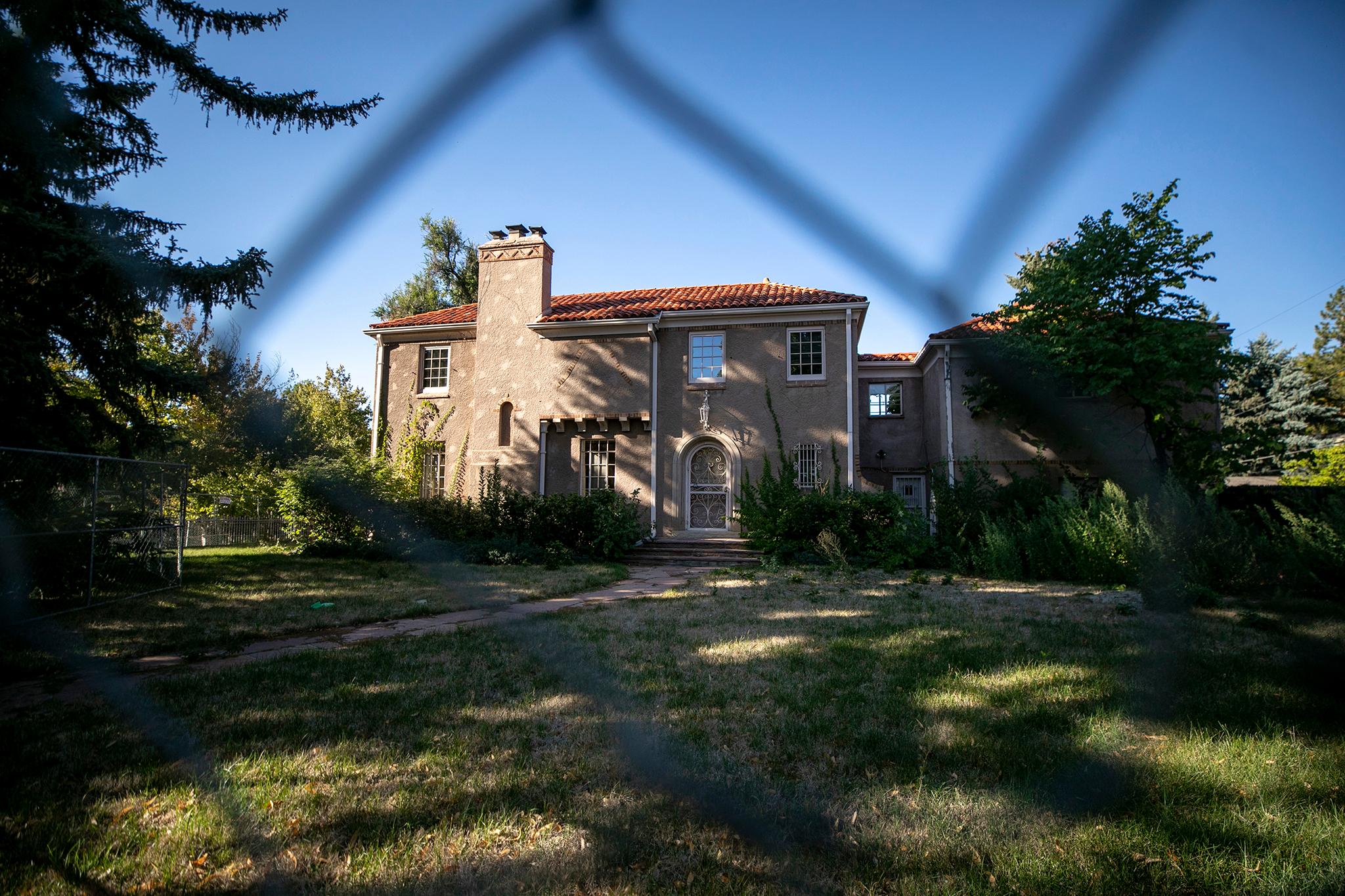After months of neighborhood squabbles over the future of an Italian Renaissance Revival mansion at 5013 E. Montview Ave., the Landmark Preservation Commission unanimously decided to allow the building to be demolished.
The group made its unanimous decision, first reported by the Denver Post, at a Tuesday night meeting, following the advice of principal city planner Abigail Christman -- from the Denver Community Planning and Development, the same planning department that argued the home was eligible for preservation.
Why trigger a preservation process that the department might back out of?
"This process is required by the Denver Revised Municipal Code and Community Planning and Development is required to follow this process by law," explained Amanda Weston, a spokesperson for Landmark Preservation.
Did the planning department learn anything through the process?
Weston didn't have a direct answer.
When the city announced the building could potentially be saved, community members drafted an application to preserve the structure as a landmark.
The owners opposed the application and described it as "hostile." But owners don't need to be on board for a property to be preserved.
Over months, neighbors debated the merits of preserving the land or allowing a new home to be constructed.
There was even a mediation process that didn't prove fruitful.
Ultimately, the preservationist's application wasn't endorsed by Denver's urban planners and the Landmark Preservation Committee agreed, a great relief to the owners, Marianne and Mark Rinehart.
The Rineharts wanted to build a new home on the land they purchased in September 2022.
Initially, they considered preserving the structure. But after exploring the possibility, they decided they couldn't afford to do so.
"Given the enormous cost of repair, we decided to demolish the structure and build a new home with features fitting the look and feel of the neighborhood as residents of Park Hill have been doing for decades, including on Montview Blvd.," explained Marianne in a letter to the preservation board.
They hired a firm to draw up plans and spent more than $120,000 on development of the new home alone. The plans were submitted to the city, and the reviewers in Community Planning and Development offered few comments.

Then the couple learned that the home was being considered for Landmark Designation. They were shocked.
But in many cases the possibility of landmark designation does not trigger an actual petition, from the community, to save a building. In this case, it did.
After neighbors submitted a preservation application, the couple entered into mediation with the preservationists. They even offered to sell the home to a preservation-minded buyer, but nobody put in an offer.
"This entire process has posed immense challenges and emotional strain on our family," she said. "We are not developers; our goal is to create our forever home in our cherished neighborhood."
Many neighbors wrote in favor of demolition. As of Jan. 15, 70 people wrote in opposition to the landmark designation for the structure while one supported it.
"The building offers nothing to Montview," resident Greg Goldberg wrote in comments to the Landmark Preservation Committee. "It is a dilapidated, rundown, historically insignificant, plain, ugly, out of touch, eyesore structure."
So why did city planners decide the structure wasn't worth saving?
While the form was technically complete, city staff decided it didn't meet muster on two criteria: having a "direct and substantial association with a recognized person or group of persons who had influence on society" and being "a significant example of the work of a recognized architect or master builder."
The strongest case that the applicants had was that the building was owned by the late Denver theater mogul Harry Huffman.
"The designation application does not provide sufficient justification for why this home tells a significant story related to Huffman," Christman wrote. "Additionally, the statement of significance provides biographical information but does not present a clear case for Huffman's influence on society."

Nor did the application successfully demonstrate the influence other residents had, including philanthropist Mary Elizabeth "Betty" Hawley and Universal Tractor Company owners Alston and Allison McCarthy.
The applicants also needed to prove that the building was a significant example of a master builder's work, and as Christman sees it, they failed prove that Douglas M. Sugg, the builder, was any such thing.
"This summary of his work is not sufficient to establish him as a master builder," Christman explained. "Either more information on the properties Sugg constructed or his prominence within the construction and real estate industries is needed. Additional context on the fact that this house was built on speculation (such as when Sugg started building on speculation and whether this was related to the economy during the Great Depression) is needed help to establish this as a significant example of Sugg's work."
Though the family can now proceed with demolition, they have less money for the project.
"The financial impact is overwhelming, with a total expenditure exceeding $2.6 million on the property," explained Marianne in her letter. "This amount does not even account for attorney fees, currently standing at over $16,000 as of this letter, and mortgage payments totaling over $123,000 as of the same period."
Will they receive compensation from the city for the expensive headache of the unsuccessful preservation process?
Not according to the law.
"Property owners do not get compensated during this process," Weston explained.











